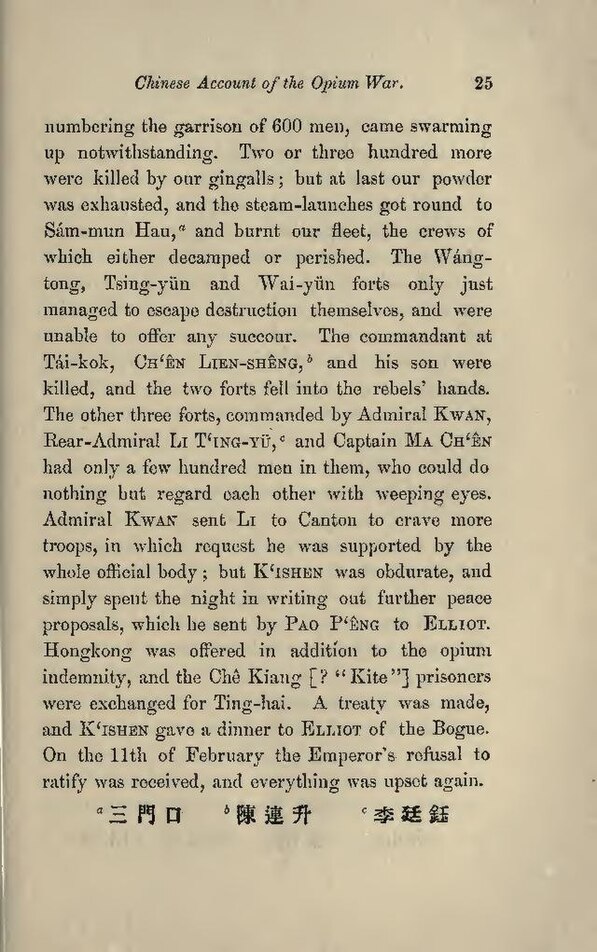numbering the garrison of 600 men, came swarming up notwithstanding. Two or three hundred more were killed by our gingalls; but at last our powder was exhausted, and the steam-launches got round to Sám-mun Hau,[1] and burnt our fleet, the crews of which either decamped or perished. The Wáng- tong, Tsing-yün and Wai-yün forts only just managed to escape destruction themselves, and were unable to offer any succour. The commandant at Tái-kok, Ch’en Lien-shêng,[2] and his son were killed, and the two forts fell into the rebels' hands. The other three forts, commanded by Admiral Kwan, Rear-Admiral Li T’ing-yü,[3] and Captain Ma Ch’ên had only a few hundred men in them, who could do nothing but regard each other with weeping eyes. Admiral Kwan sent Li to Canton to crave more troops, in which request he was supported by the whole official body; but K’ishen was obdurate, and simply spent the night in writing out further peace proposals, which he sent by Pao P’êng to Elliot. Hongkong was offered in addition to the opium indemnity, and the Chê Kiang [? "Kite"] prisoners were exchanged for Ting-hai. A treaty was made, and K’ishen gave a dinner to Elliot of the Bogue. On the 11th of February the Emperor's refusal to ratify was received, and everything was upset again.
Page:Chinese account of the Opium war (IA chineseaccountof00parkrich).pdf/41
This page needs to be proofread.
